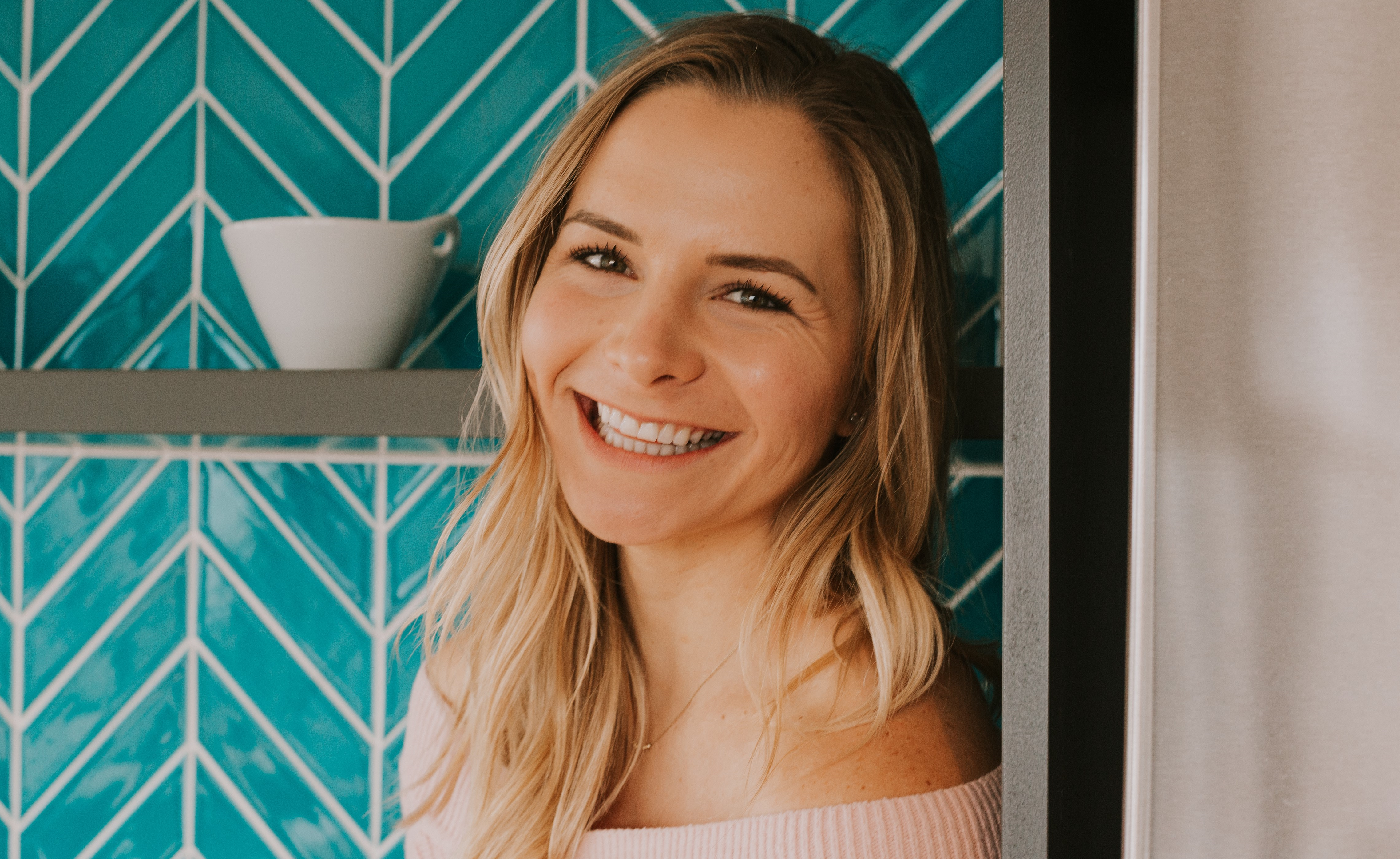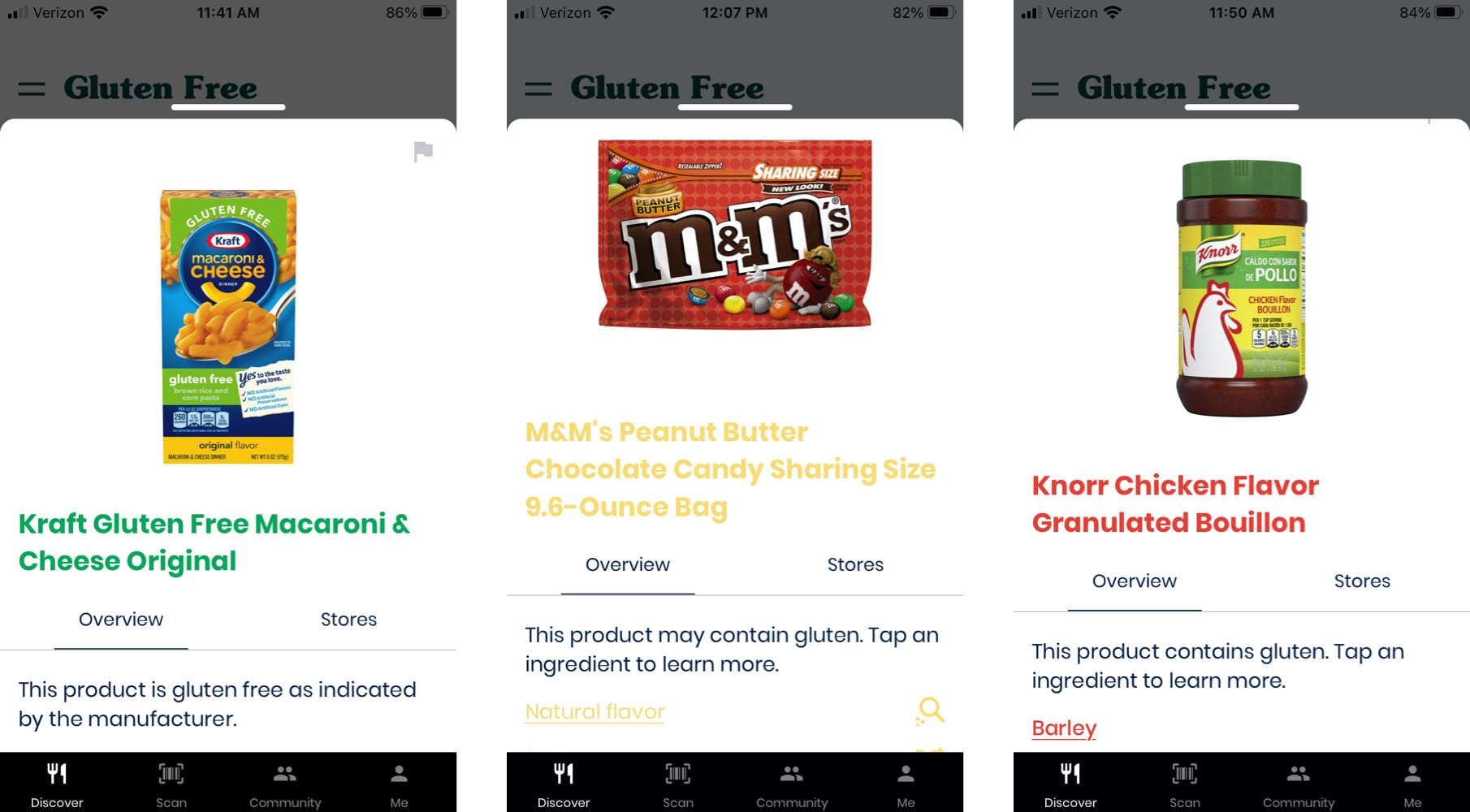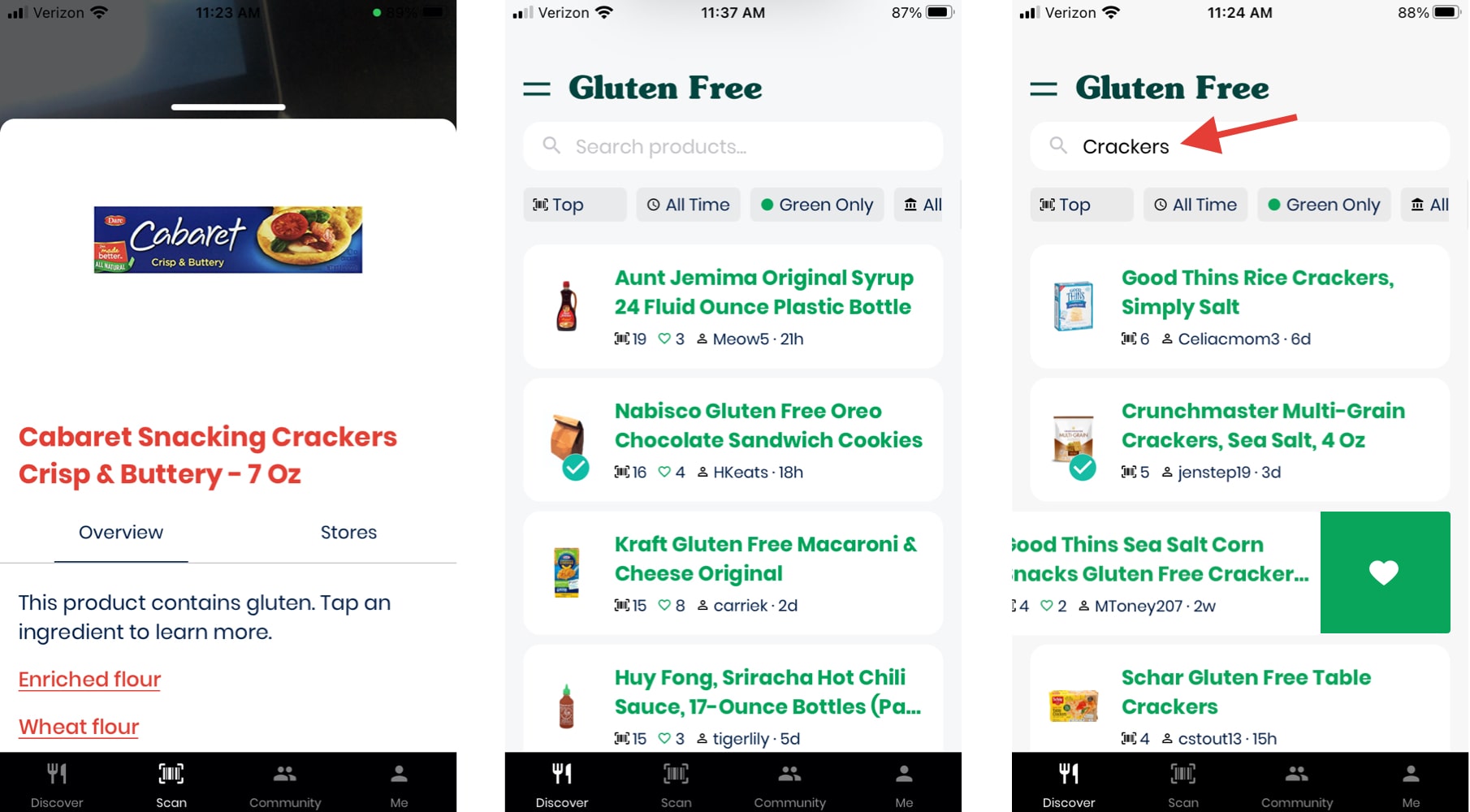Q&A with Erin Heidenreich, Dietitian Lead for the Spoonful Gluten-Free App
Meet Erin Heidenreich, a Registered Dietitian Nutritionist (RDN) who specializes in helping people with celiac disease. A celiac patient herself, she understands the physical, emotional, and mental hurdles faced by those in our community. Recently, she helped develop Spoonful, a new app for gluten-free grocery shopping.
1. When did your journey with celiac disease begin?
I have known about celiac disease my entire life, as it runs in my family. But, it wasn’t until I was diagnosed my senior year of high school that I had a more personal experience with it. Having to live a gluten-free life is much different than watching others follow it from the sidelines. My journey certainly has not been easy, and I remember having many challenges, things I know everyone with a new celiac disease diagnosis goes through. But, they are all challenges and struggles that have brought me to the place I am today. For that, I am so grateful for the positive ways that celiac disease has changed me and my life.
"Spoonful contacted me and told me they wanted to make a gluten-free app with celiacs in mind. I knew this would be a game-changer for the gluten-free community!"
2. What made you want to get involved with Spoonful?
When I was diagnosed and learning how to read food labels, there weren’t many tools or resources. Back then, there wasn’t “an app for that” either. It was really challenging to learn all the rules of gluten-free products and how to pick safe options. I first heard about scanning apps a few years ago, many years into my celiac disease diagnosis. I remember thinking how helpful that would have been for me in the beginning, but after looking at all the ones on the market, I quickly realized that they were not developed with celiacs in mind. While they were helpful for someone following a gluten-free diet, they had many errors and were not always accurate enough for someone with celiac disease to follow. As I grew my private practice counseling people with celiac disease and other health conditions, many of them wanted to use an app, but there just wasn’t one on the market. In early 2020, Sam and Deepa from Spoonful contacted me and told me they wanted to make a gluten-free app with celiacs in mind. I knew this would be a game-changer for this community and my clients. The fact that Spoonful is developed with dietitians and the team is working with celiacs in mind was huge for me! I’m truly excited at the possibilities this app has for everyone in the gluten-free community.
3. How does the app work? Can you explain how someone with celiac disease might use it?
It’s pretty simple! You just open the app and scan the barcode of a food product. The app then analyzes its ingredients and looks for any gluten-free claims. As a result, the user will see the product color-coded GREEN, YELLOW, or RED.
GREEN: It’s gluten-free. This is determined either by a certified gluten-free statement, gluten-free claim, or all naturally gluten-free ingredients.
YELLOW: It has some ingredients in it that may be sourced from a gluten-containing item. For example, natural flavors or yeast extract. You can then tap on each questionable ingredient to learn more about it.
RED: The product is not gluten-free.
One of my favorite features is that it tells you more about each ingredient and why it’s being flagged. This is really helpful for someone new to reading labels, as it’s often hard to understand why certain ingredients are safe or potentially problematic. The flagging and color-coding were a big part of what I did with the Spoonful team. It’s really important that all the backend information is both medically and scientifically accurate.
4. There are lots of gluten-free apps out there. What makes this one different?
First and foremost, the data and information behind the app has been architected by clinical professionals like me and Selena De Vries, RD who specialize in working with celiacs. That’s really important. Aside from that, I really like how Spoonful goes beyond basic label scanning and into new product discovery. It’s hard to find new, interesting products, especially if you haven’t been gluten-free for very long. To help with this, each product a user scans gets added to a feed that you can search and filter depending on what you’re after. For example, if you can’t have these gluten-containing crackers from Cabaret, you can just as easily find a gluten-free option from the feed and add it to your shopping list.
5. How can our community get it? Is it free?
Spoonful is free! It’s currently available on iOS and Android in the United States, Canada, United Kingdom, Australia, and New Zealand.
6. Why is receiving follow-up care from a knowledgeable RDN trained in treating gluten-related disorders so important after a celiac disease diagnosis?
Unlike many other health conditions, celiac disease is unique because the diet is 100% of the treatment. Since the diet is the treatment, a registered dietitian is the only health professional educated and trained to help in that area. But, helping someone through the physical, mental, and emotional aspects of adapting their new gluten-free life takes a specific dietitian who specializes in celiac disease and the strict lifelong gluten-free diet. Even better if they LIVE it – that’s some of the best training you can get. I see it too often that individuals either don’t seek help or find help in the wrong places. This can cause a lot of problems due to them acquiring incorrect information or wasting their money on a professional not equipped to help support someone with celiac disease. It’s SO important for anyone with celiac to work with a dietitian who specializes in celiac disease and gluten-related disorders. I wish this is something that I would have done! Besides living with celiac disease for almost 10 years, I have completed the Certificate of Training in Treating Gluten-Related Disorders from the Academy of Nutrition and Dietetics. The Celiac Disease Foundation is offering reimbursement grants in support of this program. I have also taken other courses in the gluten-free diet and have a Master in Nutrition Wellness, which focused on specific diets and gut health.
7. What is a piece of advice that you always give to your celiac disease patients?
I probably sound like a broken record, but work with a dietitian who specializes and is trained in celiac disease. Avoid looking online at the different forums or Facebook pages where the amount of misinformation is astounding. Take the time to work with the dietitian to really understand this new lifestyle change and learn how to live without restriction. The second thing would be to take it one day at a time. I know the beginning is really hard and many challenges will come your way. Do your best to stay positive through each step!
8. How can our community find YOU? You can find me on Instagram where I provide tons of free information and resources: https://www.instagram.com/the_celiac_space/. Or if you are looking for a dietitian, you can find more information on my website at www.theceliacspace.com.
Editor’s Notes: You can find Erin and other medical professionals familiar with celiac disease in your area in the Celiac Disease Foundation’s Healthcare Practitioner Directory. The Celiac Disease Foundation is proud to provide a reimbursement grant for RDNs who complete the Certificate of Training, as this continuing education activity supports the Foundation’s goal to provide and promote medical nutrition therapy learning to RDNs who have an ongoing commitment to the celiac disease population.


